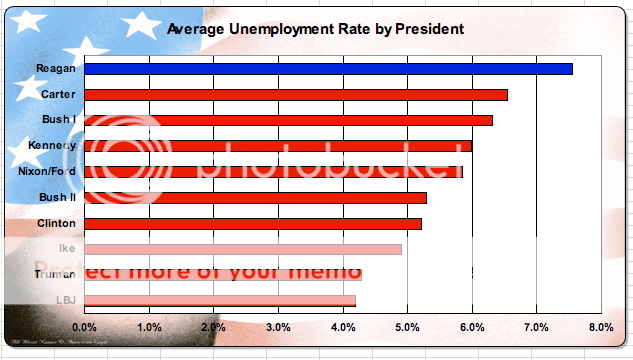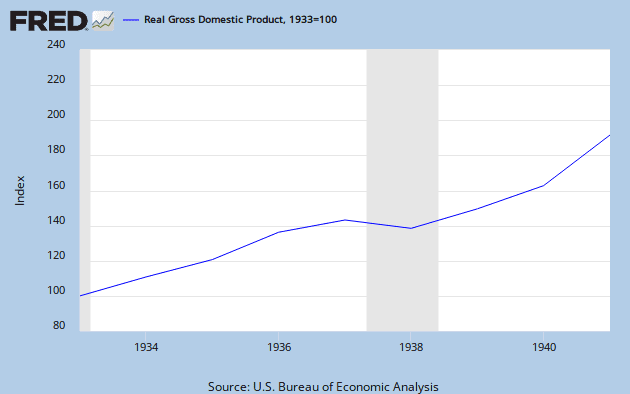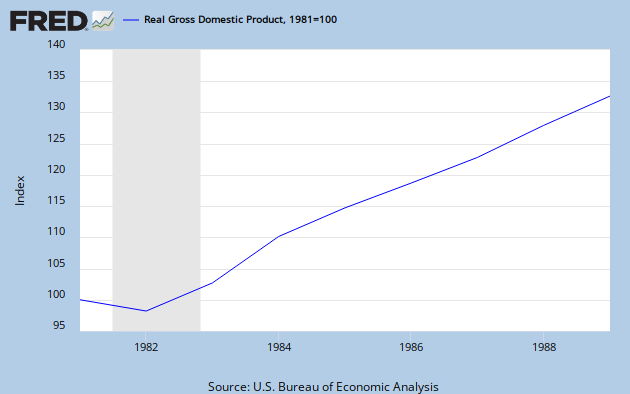FDR supposedly is a Great President for "Getting us out of the Great Depression."
Here's the data set.
I see no greatness. I see 8 consecutive years of failure.
FDR US Unemployment 1932: 24.1%, 1933: 24.9, 1934: 21.7%, 1935: 20.1%, 1936: 16.9%, 1937: 14.3%, 1938: 19.0%, 1939: 17.2%. 8 year Average = 19.8%
What's so great about averaging 20% unemployment for 8 consecutive years?
Frankie you are an idiot. FDR mobilized the most highly motivated and effective military force in human history from next to nothing. His social endeavors are just mere afterthoughts compared to saving the world. Give credit where it is due...oh ya...and pull your head out of your ass...I think you have some shit on your blinders.
So we're comparing unemployment rates, are we? It would be interesting to know if the conservative cheerleaders would apply the same standard to their heroes. After all, Reagan had the highest rate of unemployment of any President since the war.



